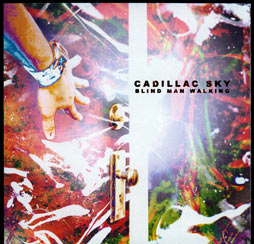By Devin Rodgers/reporter

Apparently, some ideas are so good they never goes out of style.
The Invasion is the fourth adaptation of the classic science fiction novel The Body Snatchers by Jack Finney.
Originally released as Invasion of the Body Snatchers, a B-movie in 1956 (later remade in both 1978 and 1993), the film tells about a doctor convinced that the populace of his small Californian town is being replaced by alien replicants, spawning from slimy pods from outer space.
The replicants look and sound identical to their human hosts, except for one small detail. They remain in a constant and unnaturally eerie state of tranquility, showing absolutely no emotions.
This new adaptation gets rid of the pod all together and substitutes an alien organism, spread across much of the U.S, as a space shuttle breaks apart upon re-entry.
Scientists and doctors inspect the fallen debris immediately, telling all citizens to stay clear of it.
The virus begins spreading quickly, through projectile vomit, which infects its host virtually over night, while fast asleep.
Apparently, the brain and body are more susceptible to infection during a deep sleep.
Nicole Kidman stars as Carol Bennell, a Washington psychiatrist whose latest patient, Wendy (a cameo by Veronica Cartwright, who starred in the 1978 remake of Invasion of the Body Snatchers), complains her husband has been acting very peculiar.
Soon, Carol begins noticing the same change in everyone she sees on the street.
Even her ex-husband, Tucker (Jeremy Northam), a doctor working for the CDC, has been acting a bit off lately, now wanting to spend more time with their son Oliver.
Investigating the strange new virus is Carol’s friend, and part-time boy-toy, Ben Driscoll (Daniel Craig) and his colleague Stephen Galeano (Jeffrey Wright).
By the time they figure out how the virus works and how to possibly fight it off, the rest of the film becomes Carol’s mission to rescue young Oliver before he too is infected.
Clearly, the filmmakers have taken into account real life events like the shuttle Columbia disaster, concern with the war in Iraq and people’s fear of a deadly flu pandemic.
When the first film came out, many believed it was a social commentary on McCarthyism.
This time around, the message is more about conformity in society, with conformity resulting in peace and an end to suffering.
In a world full of genocide and warfare—the film even makes several mentions of Darfur and the war in Iraq (which comes to an end only after the alien infection).
The prospect of living in a world free of pain, hate and violence is a wonderful idea, but is one willing to sacrifice humanity to obtain it?
This added theme shouldn’t come as any surprise considering the studio brought in Andy and Larry Wachowski (the brothers behind the Matrix films, which also deal with similar themes of conformity and oppression) to rewrite the script, and V for Vendetta director, James McTeigue, to shoot extra scenes and spice up the ending with more action.
The contributions to the film by McTeigue and the Wachowskis are uncredited, but it’s no secret that the film went through massive rewrites, reshoots, edits and test screenings to get to its final form … and it shows.
Taking credit for the final product is German filmmaker Oliver Hirschbiegel, who directed 2004’s Downfall, a film about the final days of Adolf Hitler, which earned an Oscar nomination for Best Foreign Language Film.
The Invasion has a great cast, a great premise and potential to be a great thriller, but the film is plagued by a number of issues.
For starters, it’s not that scary. On occasion, we get a few moments of suspense and some chills, but the film is far more interested in a political message.
When the film substitutes intelligence for forced action sequences and a climatic car chase, The Invasion becomes just another mindless summer flick.
This is probably one of the poorest edited films of the summer, maybe even of the year.
It’s obvious scenes were added to fill it out. Even with a running time of roughly 100 minutes, it feels undercooked, as though it’s missing another 20 minutes worth of scenes to help keep the narrative flowing at a smooth, more cohesive pace.
The audience feels as if two directors are in a tug-of-war for control over the script.
The Invasion also suffers from the same problem the original film had—its ending.
The resolution to the alien virus is so immediate, so simple and so underdeveloped, the invasion might aswellhave been a dream.
One day you wake up and the world is different, and the next it’s all back to normal.
Unfortunately, The Invasion, needs more work, and I can’t help but feel that this wasn’t the film Hirschbiegel intended to make. That one is probably still lying around on the cutting room floor. This is a disappointing misfire, so you’re better off sticking with the ’78 version.























